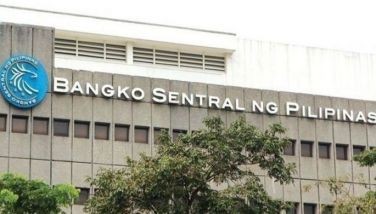FPIC reacts to Spy Bits item
Dear Sir:
This is in reference to the Spy Bits column entitled “West Tower Condo: Something fishy and smellier” that appeared in your paper last Oct. 19, 2010. We would like to correct some inaccuracies and innuendos in the said column.
The article mentioned, among other things, that “A knowledgeable source from UP-NIGS or the UP National Institute for Geological Sciences confirmed that they have indeed recommended the use of radioactive iodine and the Geiger counters to once and for all detect the location of the leak. But for some reason, FPIC has been very adamant in its refusal, giving the excuse that the radioactive iodine could cause contamination.”
We would like to reiterate that FPIC has been assisting and cooperating with the Makati City government in its ongoing efforts to find the source of the seepage. FPIC has done numerous excavations along its pipeline and has conducted a host of tests to determine the source of the said leak. Having been in the pipeline operations business for more than 40 years, FPIC only uses safe and time-tested procedures that are in line with global best practices.
In particular, the use of radioactive iodine or radio isotopes should be approached with prudence. Without a full understanding of the specific procedure involving radioactive substances, FPIC is cautious of the possible unknown adverse effects this procedure might have on its personnel, the metallic/non-metallic components of the pipeline system and the environment. This is even more critical given the fact that we transport airline fuel used by cargo and passenger planes and other products which have great bearing on the safety of the general public and surrounding communities.
There are safer and more reliable alternatives being used worldwide. Specifically, high resolution In-Line Inspection (ILI), which the pipeline inspection industry developed in the late 1990s, is now the internationally accepted method and considered as the standard used by leading pipeline operators around the world for assessing pipeline structural integrity, including detecting pipeline anomalies such as leaks. The ILI, in effect, became the internationally accepted method of pipeline inspection replacing all the other previously used methods in terms of direct measurement of pipeline metal. FPIC uses the ILI method as this gives the most comprehensive report on the state and integrity of the pipeline.
As FPIC had previously informed the Office of the Makati City Mayor in its Sept. 20, 2010 letter, FPIC has commissioned an ILI test using magnetic flux leakage (“MFL”) and ultrasonic technologies which took almost three months to complete. The results of the independent test (using MFL) for the segment covering Nichols to Quirino Avenue, which include the West Tower Condominium area, have already been submitted to the Office of the City Mayor on Oct. 15, 2010. The results as determined by independent contractor NDT Middle East (NDT) was that there are “no metal loss areas that would indicate any leaks are present.”
FPIC engaged global firm NDT Middle East for the ILI test utilizing MFL. FPIC chose NDT for its competence and integrity in doing such pipeline tests. It is to the public and company’s best interest to detect, if ever, any form of anomaly in its pipeline. Should there be any anomaly found in the pipeline, FPIC will immediately do corrective work to ensure the reliability of its pipeline and the safety of the general public.
NDT Systems & Services AG with corporate headquarters in Germany has provided global pipeline inspection for customers all around the world in the oil and gas, steel, rail and automotive industries for more than 40 years. NDT has done MFL tests for global energy giants Gaz de France and South European Pipeline (SPSE), also major pipeline operators in Europe. Currently, NDT Systems & Services AG is one of the leading and most respected pipeline inspection service providers in the world. To date, there are only a handful of companies with this capability worldwide.
FPIC has also contracted two companies to do ground penetrating radar scans (GPRS) around the area to identify potential areas for investigation. While GPRS is not definitive, the results of these radar scans point to some possible areas for further examination, including underground structures not related to FPIC’s pipeline. FPIC has notified the Makati City about these areas and we believe the findings should be further verified and examined. We have submitted the results of the two radar scans to the Makati City government last Sept. 30 and Oct.1, 2010, respectively.
Hopefully, with the trust and close cooperation of all parties, this crisis will be resolved expeditiously in light of public safety. Please be reassured that FPIC stands ready to assist and cooperate with all parties to ensure the welfare and safety of the residents of Makati.
IRENEO A. RAULE JR.
Senior Vice President-Operations and Maintenance
First Philippine Industrial Corp.
- Latest
- Trending






























